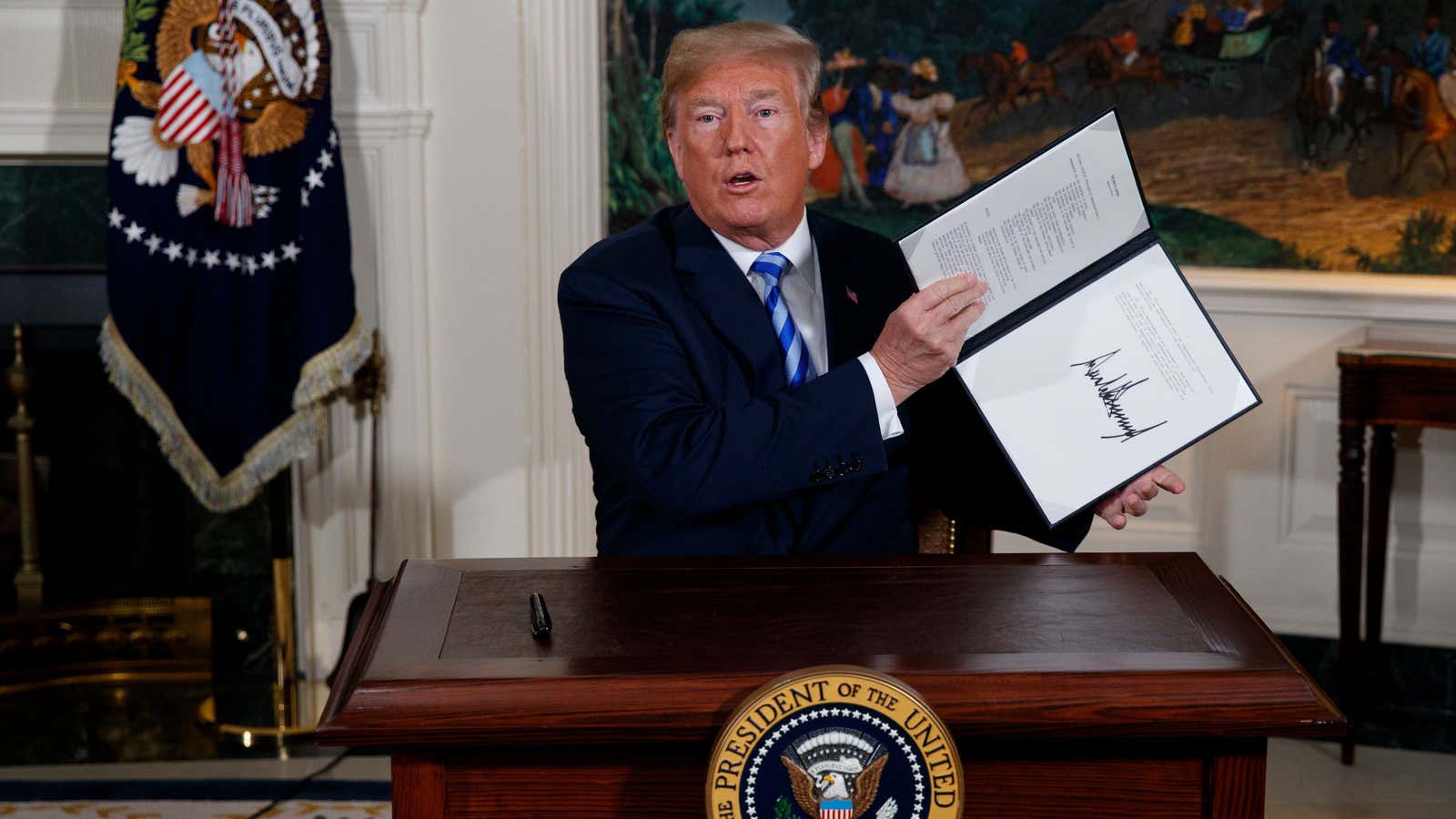President Donald Trump announced on May 08 that the US will withdraw from the nuclear deal with Iran and reinstate economic sanctions against Tehran. “We will be instituting at the highest level of economic sanction; any country that helps Iran in its quest for nuclear weapons could also be strongly sanctioned by the United States,” Trump said on Tuesday.
The move has repercussions for the entire global economy—including India.
For one, it would make it harder for Iran to sell its oil to other countries, or to use the international banking system. This will also hit India where it hurts the most.
Iran is currently back to being the third-largest supplier of crude oil to India, which had scaled down its purchases from the country when sanctions were in effect between 2006 and 2015. In 2013, for instance, India’s government data showed that Iran had slipped to the seventh position in the list of crude oil suppliers.
However, in the last three years, since the sanctions on Tehran were lifted by former US president Barack Obama, India’s crude oil imports from Iran have nearly doubled.
India, according to Reuters, was even planning last month to scale up its purchases from Iran as Tehran had offered better terms. Since then, Saudi Arabia, the biggest crude oil supplier to India, has increased the price of its supplies to Asia.
Oil prices, which are already at a four-year high, will rise further if the supply from Iran were to reduce.
Trump’s move has also divided the international community and that will, at best, prolong the uncertainty in global oil supplies. While Israel has backed Trump’s move, countries like Russia and other European nations have decried the unilateral call from the US to isolate Iran.
“Our governments remain committed to ensuring the agreement is upheld, and will work with all the remaining parties to the deal to ensure this remains the case including through ensuring the continuing economic benefits to the Iranian people that are linked to the agreement,” said a joint statement from UK prime minister Theresa May, German chancellor Angela Merkel, and French president Emmanuel Macron.
The escalation in geopolitical tensions in the middle east, resulting from Israel and the US upping the ante against Iran, will likely keep oil prices buoyed, even if sanctions are not implemented by other countries. That’s hardly any respite for India where fuel prices are already at record highs.
